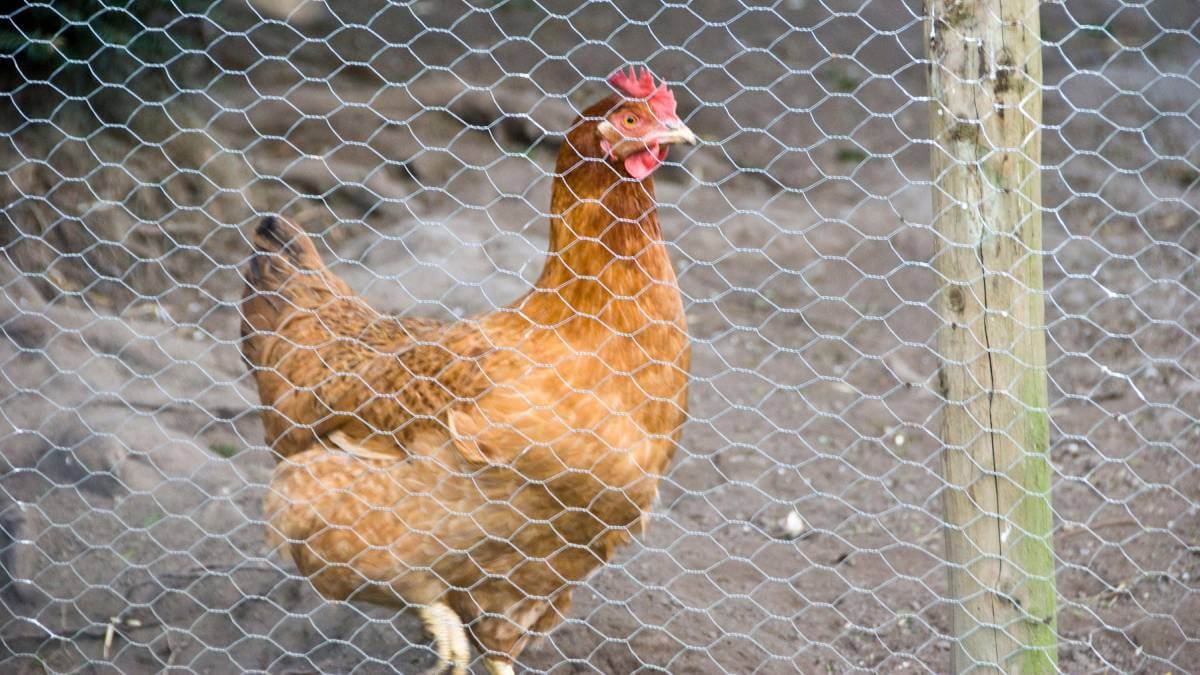While many children grow up with a cat or a dog, Arthur Parkinson grew up with chickens.
When he was a child, kids in the playground called him ‘Chicken Boy’ – and now, his eponymous memoir explores how keeping hens has been his sanctuary.
It also delves into what others might want to know if they’re keen to keep chickens of their own.
View this post on Instagram
The most important thing is to do your homework, the writer, gardener and hen-keeper advises.
“I was obsessed with hens from being little and went to the library, just as you would if you were starting a new garden from scratch. ”
Mr Parkinson offers advice for beginners who want to keep chickens in their garden.
You need space
“Ideally, each hen needs 10 square metres. A pair of birds will need a fairly substantial run. Imagine the space a fruit cage would take up. That’s the kind of space a hen run will take up in your garden or outside space,” says Mr Parkinson.
“You could get away with 20 square metres for three birds who are going to lay (eggs) over the spring and summer months.”
Chicken runs need to be covered with netting or clear plastic sheeting to protect them from wild bird droppings.
View this post on Instagram
“Consider converting a fruit cage, which will ensure that your hens are bio-secure against bird flu and other illnesses because they are under a netted top, and it keeps wild birds away from the feed. You just need to enforce the sides with a thicker wire that a fox isn’t going to be able to chew through,” he advises.
Ideally, place the run/coop near plants and try to place it in a sheltered spot in the sun, as hens don’t like to be exposed to wind or rain either, Mr Parkinson suggests.
They are companions
“They’re not just going to sit there and lay you an egg every day, they’ve got personalities. A lot of people who get chickens are just thinking about eggs, but the eggs are secondary,” he adds.
View this post on Instagram
Mr Parkinson says chickens will bond with their owners, that they recognise voices and can see in full colour.
“My girls hate it if I’ve got a woolly hat on, because they don’t recognise me,” he says. “Hens have strong personalities. You get those that are talkative and forward and others are quite aloof. They are very inquisitive.”
Hens are flock birds, so need to be kept in a pair. Mr Parkinson suggests getting three because if something happens to one, you’ve still got two left, as it’s very difficult to introduce new birds once the flock is established because of the pecking order formed when they are chicks.
Also, make sure to read up on the different breeds and think about what you want chickens for. Do you want them as pets or producers?
What do you feed them?
View this post on Instagram
“Soy-free layer pellets and not too much corn because that will make them fat. If people think chickens can produce eggs on leftovers, that’s an old wives’ tale.” Mr Parkinson says he’ll occasionally give his birds sweetcorn out of a tin.
Mr Parkinson urges owners to invest in a hanging rat-proof feeder. Chickens need to be able to access food all day, as they are grazers. They will need plenty of water too. They also need to be eating grit – such as broken-up oyster shells – which makes a strong egg.
How many eggs can you expect?
View this post on Instagram
One a day from each bird, Mr Parkinson estimates. “They will take a day off a week, so some days you’ll get two eggs, but most of the time if they are young hens, they will supply a family very easily. As the hens get older they lay less, but the eggs get bigger.”
You don’t need a cockerel for eggs
“They are not necessary for egg production. The hens will lay without one. The only thing you need to do is put a dummy egg in the nesting box, because without a cockerel they often don’t know where they should lay their eggs.”
A cockerel will often go in the nesting box and he’ll cluck and encourage them to lay their eggs in the box, he explains.
How do you keep them clean?

Make sure they can have a dust bath in dry soil every day, he suggests. “Most chickens leave their droppings at night under the perches, and a lot of people just put newspaper under that, that they can take out every couple of days and put on to the compost heap.
“Nesting boxes need to be filled with chopped straw. I buy the straw that’s sold for horses that’s treated with eucalyptus, because it smells nice. I clean the area under the perches every day and the rest of the henhouse gets cleaned out once a week to a fortnight.”
Do you keep chickens? Would you like fresh eggs every day? Let us know in the comments section below.
Also read: Is lab-grown meat good news for animals?
– With PA

